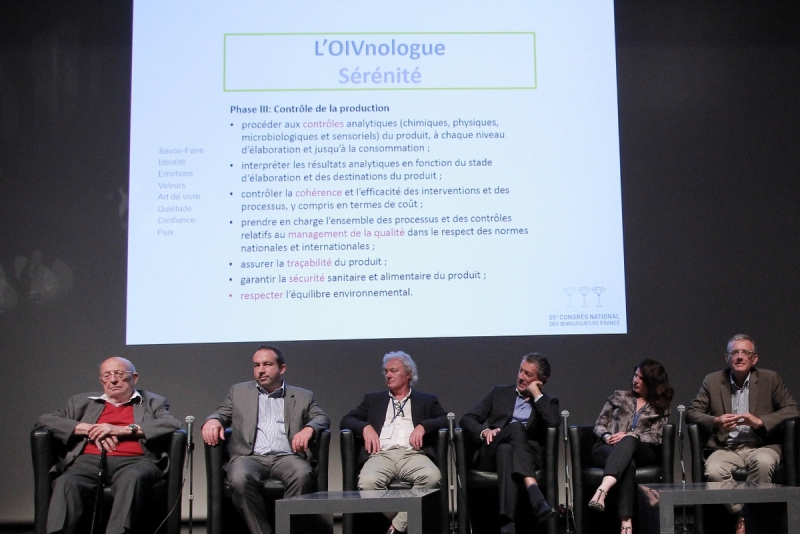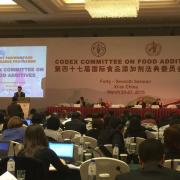

Among the various points of the agenda, a particular point concerned the additives and their provisions for the food category 14.2.3 “Grape wines and its sub-categories”.
Grape wine is part of Annex 3 for which the additives that are recognised for use in the grape wine category and subcategories should be evaluated case by case.
In 2014 the Committee agreed to establish an electronic working group, to collect information on the functional classes, on the appropriateness of setting good manufacturing practice (GMP) or a numerical maximum use level as well as the actual levels of use.
During this 47th session, the Committee endorsed the recommendation to adopt at Step 8 the draft provision for carbon dioxide (INS 290) in food category 14.2.3 “Grape wines” with a maximum use level at “GMP” and to revise the Note 60, associated in order to limit CO2 content in finished still wine at 4000 mg/kg at 20 °C”;
The Committee also endorsed the recommendation to establish an EWG to develop a discussion paper, for the next session, which would assist to analyse the specific provisions of food category 14.2.3 and its sub-categories case-by-case.
It was noted that the concern was not about the safety but about the technological justification of the provisions.
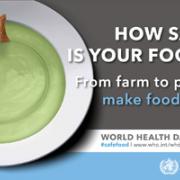
The theme for World Health Day 2015 is Food Safety, a theme of high relevance to all people on the planet, and multiple stakeholders, including government, civil society, the private sector, and intergovernmental agencies.
As our food supply becomes increasingly globalized, the need to strengthen food safety systems in and between all countries is becoming more and more evident. That is why the WHO is promoting efforts to improve food safety, from farm to plate (and everywhere in between) on World Health Day.
WHO helps countries prevent, detect and respond to foodborne disease outbreaks - in line with the Codex Alimentarius, a collection of international food standards, guidelines and codes of practice covering all the main foods and processes. Together with the UN Food and Agriculture Organization (FAO), WHO alerts countries to food safety emergencies through an international information network.
To contribute to the safety of the consumers and take their expectations into account is one of the strategic axes of the new OIV Strategic Plan 2015-2019.
In this framework, the OIV participates to the food safety through its network of experts and in particular the works of the group of experts "Food Safety" which establishes opinions on the new proposed oenological practices and sets limits for certain contaminants.
Moreover, the OIV adopted, several Code of Good Practices in order to limit the presence of certain undesirable compounds in particular Ochratoxin A, biogenic amines and more recently a Code of good fining practices for wine to be applied in the use of proteinaceous wine fining agents with allergenic potential.
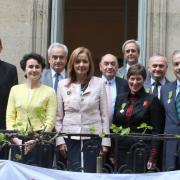
Ms Catherine Geslain-Lanéelle, Director General for Agricultural, Agri-food and Territorial Policies in the French Ministry of Agriculture, stressed the importance that France is attaching to the OIV's activities by awarding the Order of Agricultural Merit to the scientists elected to the highest positions in the Organisation.
Knights of the Order of Agricultural Merit
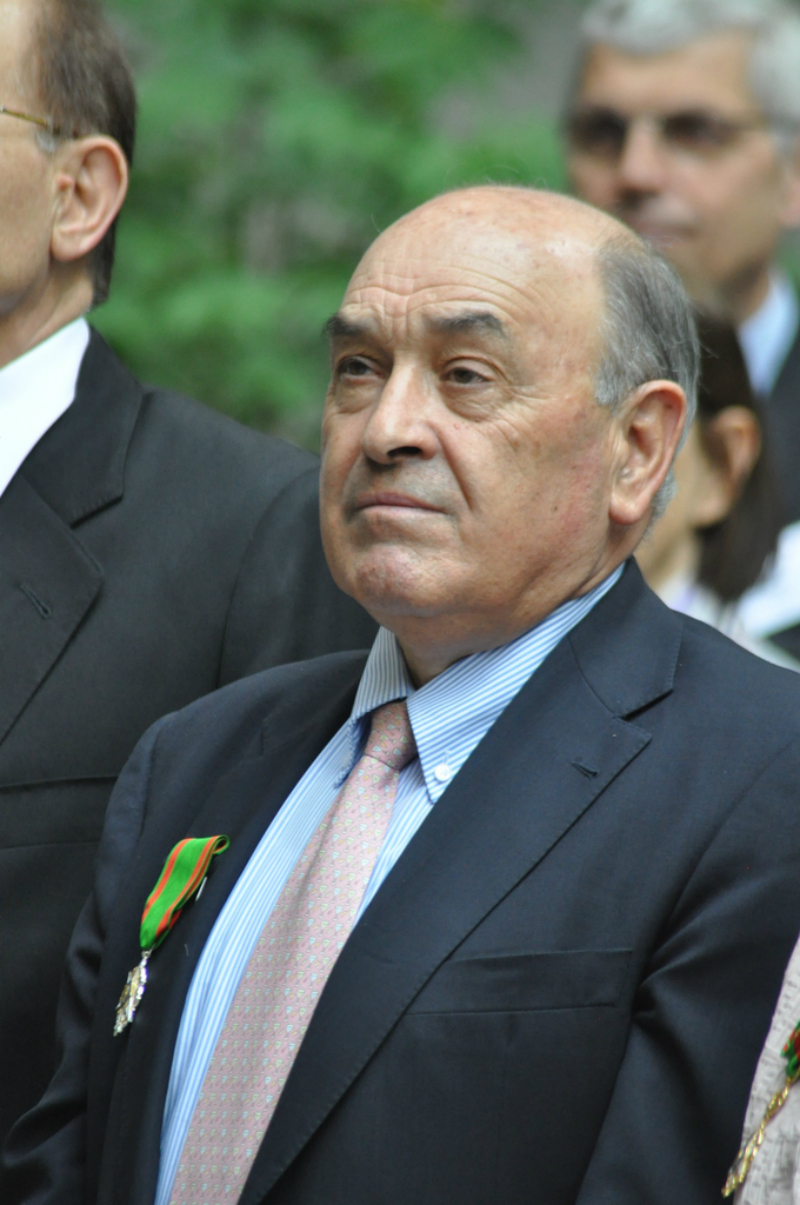
Mr Vicente Sotés Ruiz – Spain – President of Commission I "Viticulture"
Nationality: Spanish
Qualifications: Doctor in Agronomic Engineering, specialised in viticulture and oenology.
Professional career: Teacher and Researcher, currently a Professor of Plant Production (viticulture) at the Higher Technical School of Agricultural Engineering of Madrid.
Specialised in vine physiology and wine production. Director of 15 doctoral theses. Author of 165 publications.
OIV career: Spanish delegate within the "Viticulture" Commission since 1991, Vice-President of the "Vitivinicultural Zoning" Expert Group from 2004-2007, President of the "Viticultural Environment and Climate Change" Expert Group in 2007.
Other achievements: Member of the European Group for Vine Training Systems, of the Italian Academy of Vine and Wine, and of the Consultative Committee of the Spanish Wine Federation.
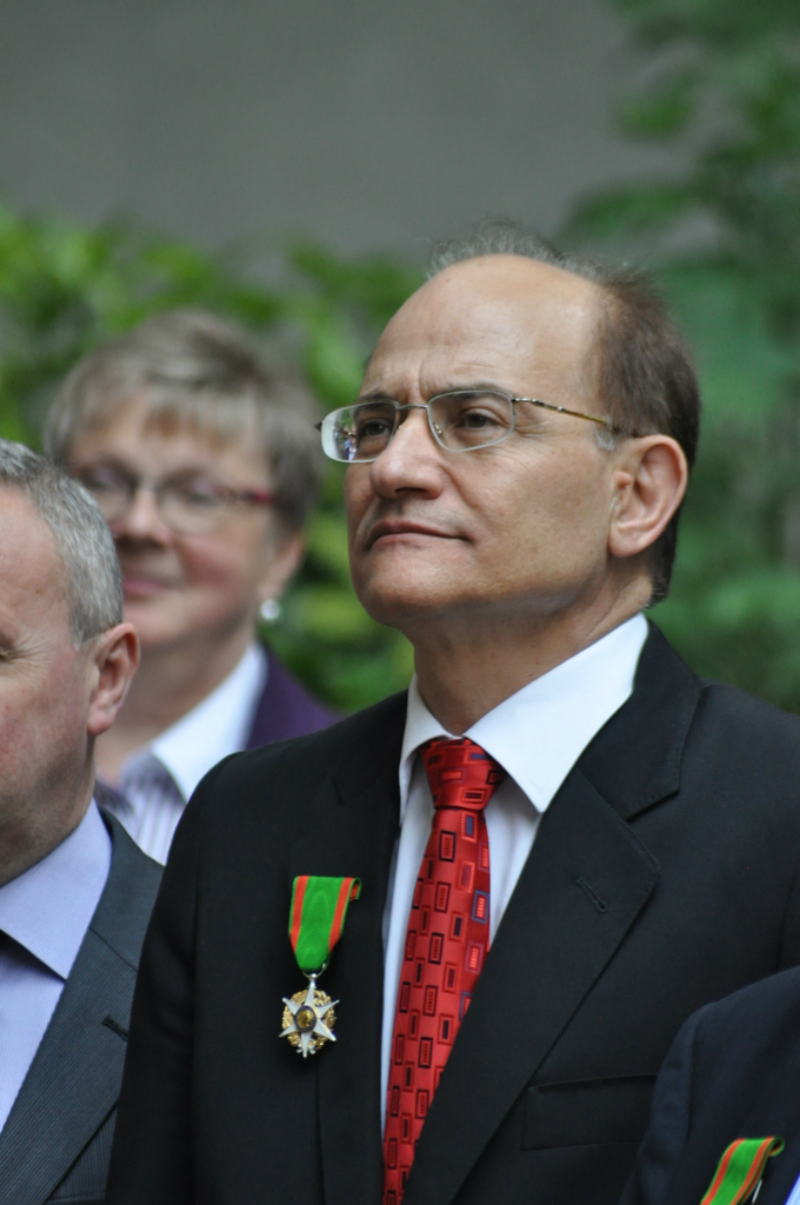
Mr Ahmet Altindisli – Turkey – President of the "Table Grapes, Raisins and Unfermented Vine Products" Sub-Commission
Nationality: Turkish
Qualifications: Doctor of Viticulture.
Professional career: Teacher and Researcher, Professor of Viticulture at the Faculty of Agriculture of Ege University in Izmir.
Specialised in organic production and canopy management. Author of 20 scientific publications.
OIV career: Turkish delegate within the "Viticulture" Commission since 2007, Scientific Secretary of the "Table Grapes, Raisins and Unfermented Vine Products" Sub-Commission in 2007, then President of this Sub-Commission since 2012.
Other achievements: Member of the Turkish Horticultural Society, member of the Scientific Committee for the World Congress of Vine and Wine (2012).
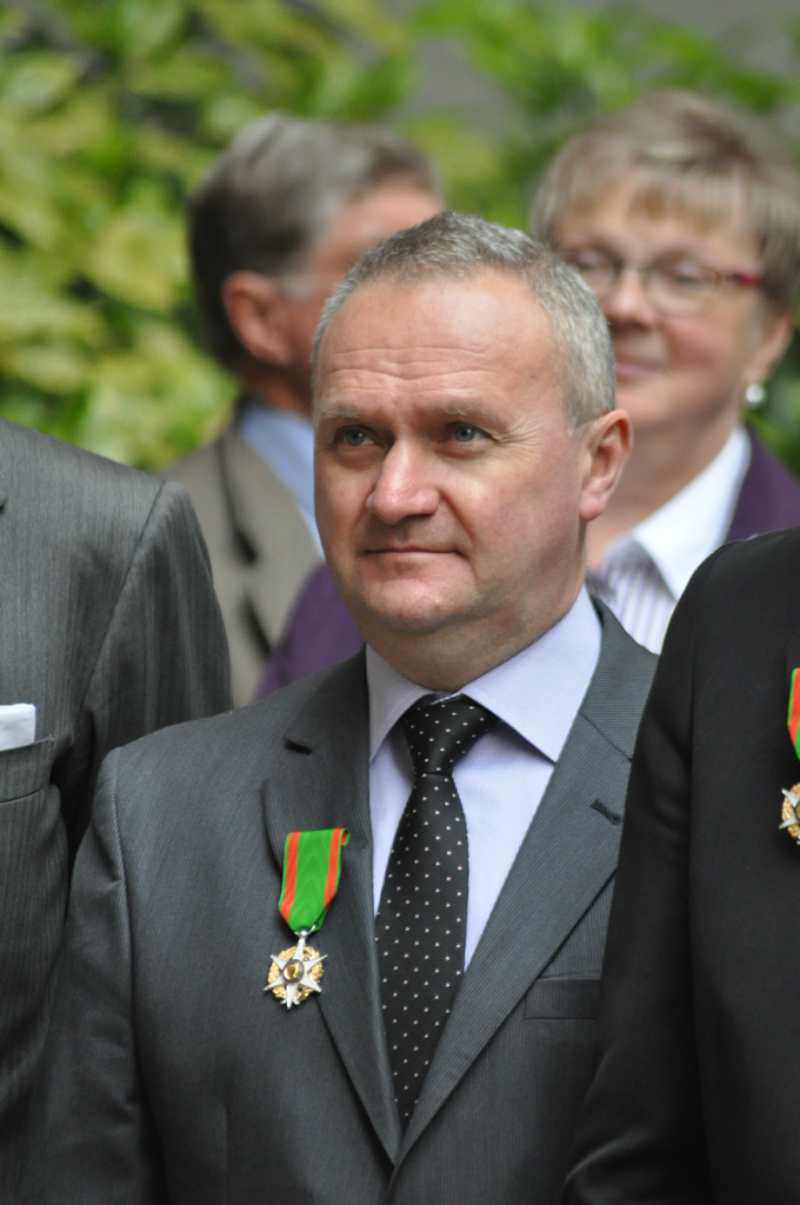
Mr Valeriu Cotea – Romania – President of Commission II "Oenology"
Nationality: Romanian
Qualifications: Doctor of Agronomy, specialised in viticulture and oenology.
Professional career: Teacher and Researcher, Professor of Oenology, Vice-Chancellor of the University of Ia?i. Director of 7 doctoral theses.
OIV career: Romanian delegate within the "Oenology" Commission since 1998, President of the "Specifications of Oenological Products" Expert Group (2007-2012), President of the "Oenology" Commission since 2012.
Other achievements: Member of the Romanian Office of Vine and Wine Products, member of the Romanian Academy of Agricultural and Forestry Sciences, President of the National Vineyard Growers and Wine Producers Association.
He is receiving the Order of Agricultural Merit 19 years after his father, Valeriu Cotea, who also received this award as President of the "Oenology" Commission in 1996.
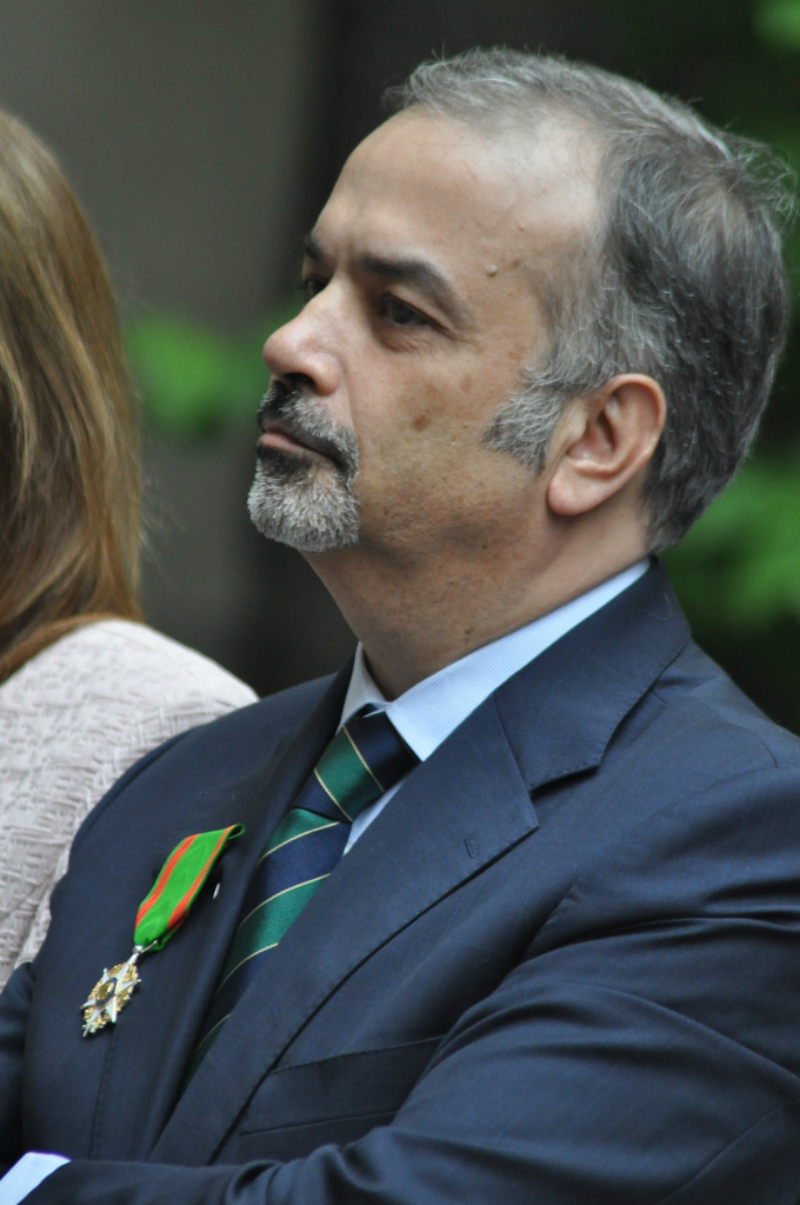
Mr Paulo Barros – Portugal – President of the "Methods of Analysis" Sub-Commission
Nationality: Portuguese
Qualifications: Graduate from the Faculty of Pharmacy at the University of Porto.
Professional career: Assistant Professor in Pharmacy, Technical Director of the Porto laboratory for wine analysis, Adviser to the Board of Directors at the Port and Douro Wine Institute. Author of over 50 publications.
OIV career: Portuguese delegate within the "Methods of Analysis" Sub-Commission since 1989, for which he became Scientific Secretary in 2009 and President in 2012.
Other achievements: Organisation of the OIV World Congress in Porto, member of the OIV National Committee in Portugal.
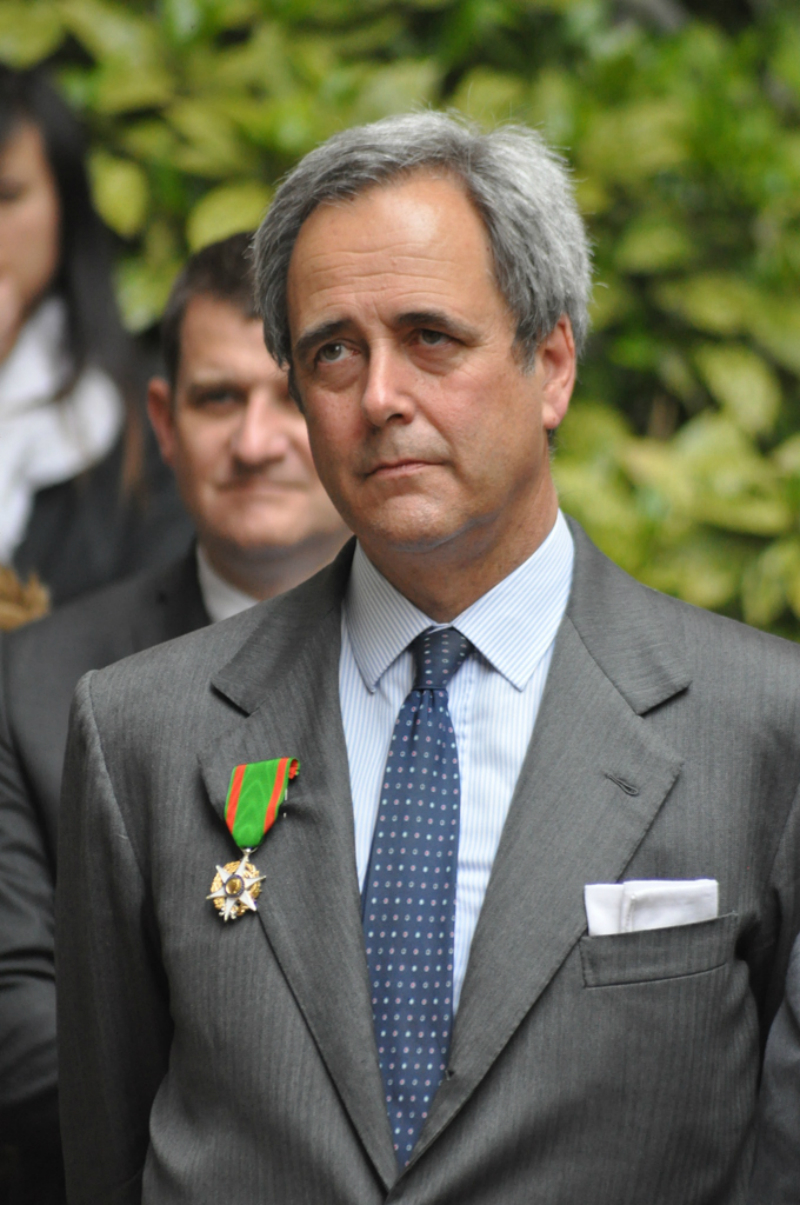
Mr Eugenio Pomarici – Italy – President of Commission III "Economy and Law"
Nationality: Italian
Qualifications: Doctor of Mathematics.
Professional career: Teacher and Researcher, Professor at the University of Naples and at Padua University in Conegliano.
Specialised in supply analysis in the fruit and wine sector. Author of 74 scientific publications.
OIV career: Italian delegate within the "Economy and Law" Commission since 2004, President of the “Markets and Consumption” Expert Group (2007-2012), President of the “Economy and Law” Commission since 2012.
Other achievements: Member of the National Committee for the protection and promotion of designations of origin.
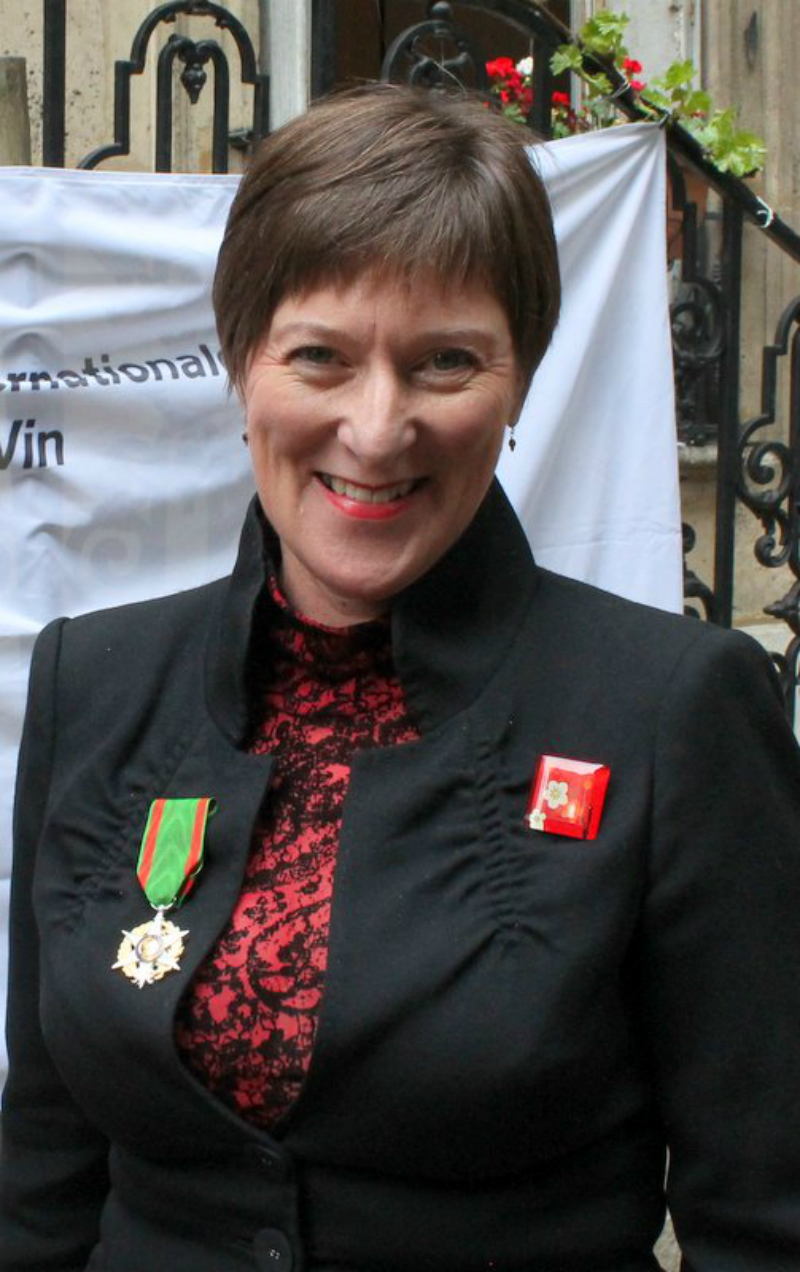
Ms Creina Stockley – Australia – President of Commission IV "Safety and Health"
Nationality: Australian
Qualifications: Master's in Business Administration, Master's in Clinical Pharmacology.
Professional career: Teacher and Researcher; Lecturer at the University of Adelaide School of Agriculture, Food and Wine; Health and Regulatory Information Manager at the Australian Wine Research Institute. Author of more than 30 publications.
OIV career: Australian delegate within the "Safety and Health" Commission since 1999, Vice-President of the "Nutrition and Wine" Expert Group (2000-2006), President of the "Food Safety" Expert Group (2007-2012), President of the "Safety and Health" Commission since 2012.
Other achievements: Member of the various working groups on additives and allergens; consultant on health, nutrition and food safety for different vitivinicultural organisations.
Officer of the Order of Agricultural Merit
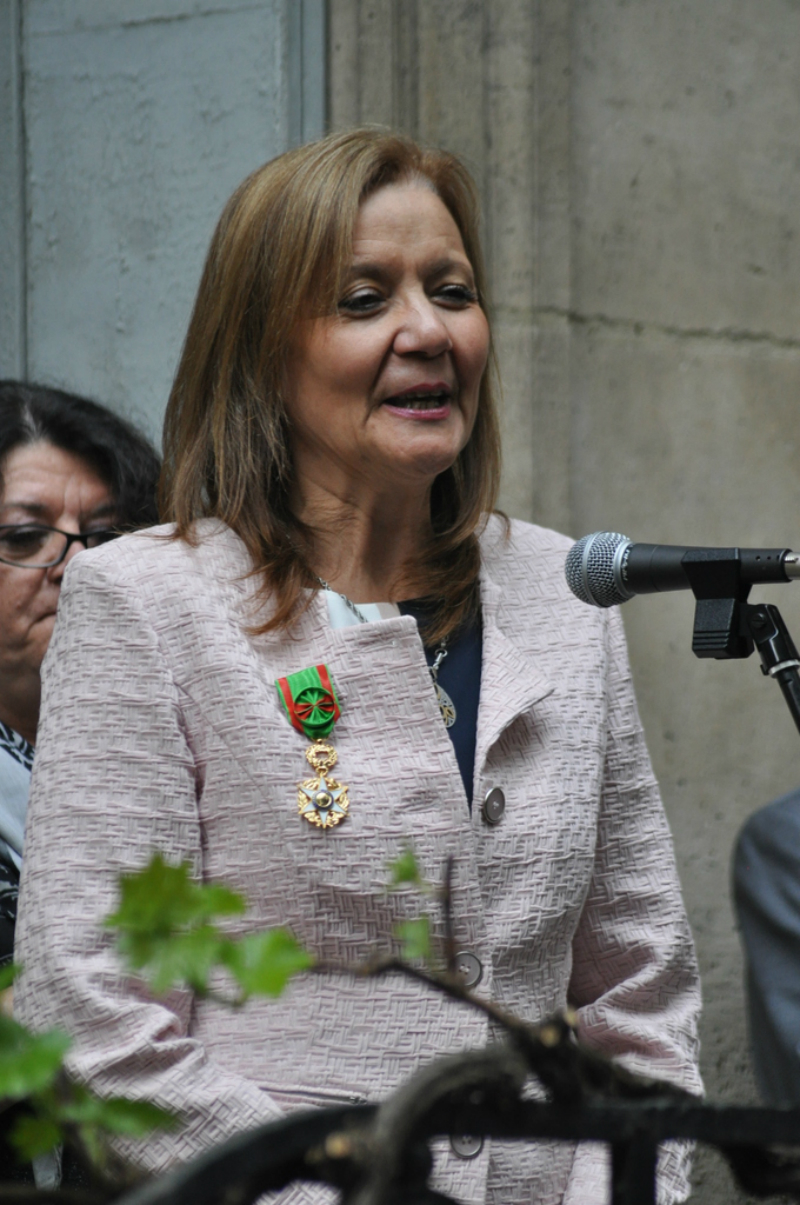
Ms Claudia Quini – Argentina – OIV President
Nationality: Argentine
Qualifications: Chemical engineering degree from the National Technological University (Regional Faculty of Mendoza)
Professional career: built within the National Vitiviniculture Institute, in particular, as coordinator of oenological studies and sensory analysis, in the analytical and technical departments, and in conducting research and monitoring duties. Professor of Wine Technology and Sensory Analysis.
OIV career: expert and delegate within the "Oenology" Commission since 2004, qualified personality within the OIV Scientific and Technical Committee (2009-2012), elected President of the OIV in June 2012 in Izmir.
Other achievements: Head of the Vinandino national wine competition, member of the Argentine delegation for international negotiations regarding wine.
From Paris to Mendoza, going via Porto, Madrid, Verona, Bucharest, Izmir and Adelaide, over 30,000 kilometres stand between the above recipients of the Order of Agricultural Merit, yet they are all brought together as part of the OIV.
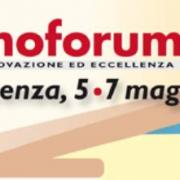
After explaining the role of the OIV, during his participation Guido Baldeschi has presented the recently published report of global state conditions, and the newest winemaking practices adopted by the Organisation (as those being currently evaluated) more precisely:
- the treatment of wines using a membrane technique coupled with activated carbon to reduce excess 4-ethylphenol and 4-ethylguaiacol;
- a Code of Good vitivinicultural practices in order to avoid or limit contamination by Brettanomyces, a monograph on PVI/PVP adsorbent copolymers.
In this sense, the review of the OIV publication “Compendium of International Methods of Analysis of Wines and Musts” counted with approximately 2000 answers which have been collected through a questionnaire sent by the OIV to more than 1000 laboratories: a project which has started in 2009.
Within the themes related to enology and wine production, several topics have been presented at this year’s edition as:
- innovative vineyard practices;
- sustainability and managing;
- how to face old and new diseases of the vines;
- techniques for the color extraction of wine;
- relationship between wine and oxygen;
- malolactic fermentation;
- the use of yeasts and bacteria;
- stabilisation of wine.
In presence of different nation speakers, the Enoforum is an international and unique showcase of what is new for the wine industry.

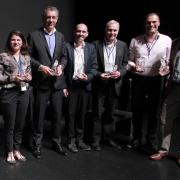
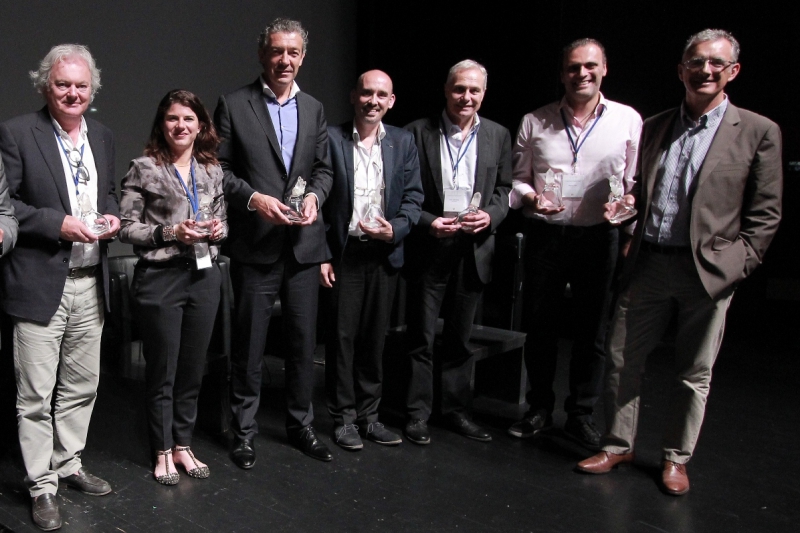
Several major contributors enabled to explore different approaches to this topic. Christophe Riou, Scientific and Development Director of the French Vine and Wine Institute showed what oenologists had done for innovation; Bernard Praz, Director responsible for wine buying at the Grand Chais de France Group, presented their contribution to the development of marques; Hubert de Boüard, co-proprietor of Château Angelus and consultant oenologist, dealt with the enhancement of terroirs and vine varieties which oenologists have done so much to bring about; while Gérard Bertrand, proprietor of the wines that go by that name, spoke of the serenity that comes of the skills, values and the art of living defended by oenologists.
Closing the morning’s proceedings, Yann Juban, Assistant to the Director General of the OIV, traced the evolution of the international definition of the oenologist between 1976 and the definition adopted by the OIV in 2013, from a collaborator ensuring respect for fair practice to an expert able to carry out duties in all fields.
Referring to the different phases of the oenologist’s profession, as defined by the OIV, he listed all the different aspects of the work, showing how they correspond to the international view of the oenologist. Innovation, especially in regard to vineyards, “with the aim of adapting the raw material to the demands of […] production and consumer requirements” (phase I of the profession); the marque, formulating “recommendations in the field of marketing on the designation and presentation of the product […] in order to improve the response to the consumer preferences identified” (phase IV); enhancement, “consider the ethical, including potential effects on consumer health, economic, social, environmental and technical aspects and develop proposals for measures in order to adapt production to needs and demands”(phase V) and last but not least, serenity, ensured by means of controls, traceability, quality management, food safety and respect for the environmental balance (phase III).
